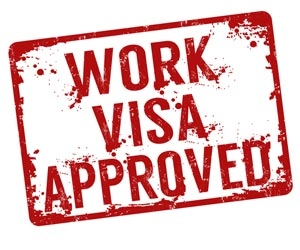Work Permits and Visas in the Czech Republic
The Czech Republic once had the reputation of being one of the most lenient countries in Europe with respect to both American travelers and prospective expatriates.

In fact, it used to be that because of the lack of enforcement by the Czech government, many Americans who lived and worked in the Czech Republic never bothered to register with the local authorities for a residency permit or apply for a work permit. Though this was never the recommended approach, there was plenty of evidence to suggest that it was easy to get away with. Even today, Prague is rumored to be home to roughly 20,000 Americans, of whom fewer than 2,000 have actually documented their status with the authorities.
In recent years, however, that leniency has changed. In 1994 the Czech police conducted a number of “sweeps” through the busiest squares of Prague and arrested up to 200 foreigners who could not produce appropriate papers. Although it’s a hassle, keep in mind that work permits (often difficult to come by because of bureaucratic red tape) are generally made available to those who persist. On the other hand, it is still true that visas are not required for Americans to enter the country and stay for under 90 days. Since the beginning of January 2008, however, the Czech Republic entered the Schengen zone. The Schengen agreement essentially allows member countries to erase their borders to allow for freer travel. However, for American expats who used to cross the border every 90 days to receive a passport stamp that renewed their tourist visa, the new regulations now require a long term visa for anyone staying over 90 days. And if you stay anywhere within the Schengen zone, not just the Czech Republic, for 90 days and do not have a long term visa to stay longer, you must leave the Schengen zone and you will not be permitted to enter until another 90 days has passed. This adds up to anyone on a tourist visa being allowed in the Schengen zone for a period of only 90 days within a 6 month time period. Visit the Czech Embassy’s website for all the details of this latest development.
The laws and regulations that govern the issuance of work permits and residency permits change constantly. Depending on who is in charge at any given time and place, these permits may take weeks or months to get. The official word from the Czech labor department is:
“Work permits to employ foreigners are issued on the basis of the situation in the labor market and with regard to the prognosis of developments in the labor market.”
In other words, if a specific position can be filled easily by a Czech then the government will not issue a work permit to the foreign national seeking that position.
For prospective English teachers, this usually does not pose obstacles. There are enough English teaching jobs available and relatively few Czechs capable of filling those positions at the same level as a native speaker.
Having a work permit does entitle you to free medical care and gives you the privilege of paying Czech prices. It also puts you in the position of having to pay taxes, although most schools will help you out in this process if you ask. According to one woman who was teaching in a small town in western Bohemia, all of this is “worth it beyond a few months’ stay.” The formal requirements include a police background check, a physical exam (possibly including an AIDS test), a diploma and/or teaching certificate, and a contract to work full-time. It takes roughly two months for your papers to clear all the bureaucratic hurdles, desk to desk, office to office. Once the process is initiated through your employer, it’s usually no problem to begin working. For the latest information, make sure to contact the Czech embassy. Contact details can be found on their website


 Teach English in Asia
Teach English in Asia  Cruise Ship Jobs
Cruise Ship Jobs  Alaska Fishing Industry Jobs
Alaska Fishing Industry Jobs  Sharing Economy / Gig Economy
Sharing Economy / Gig Economy